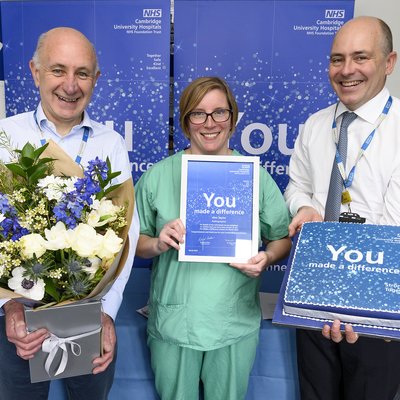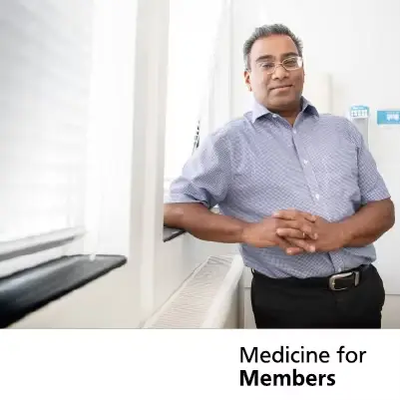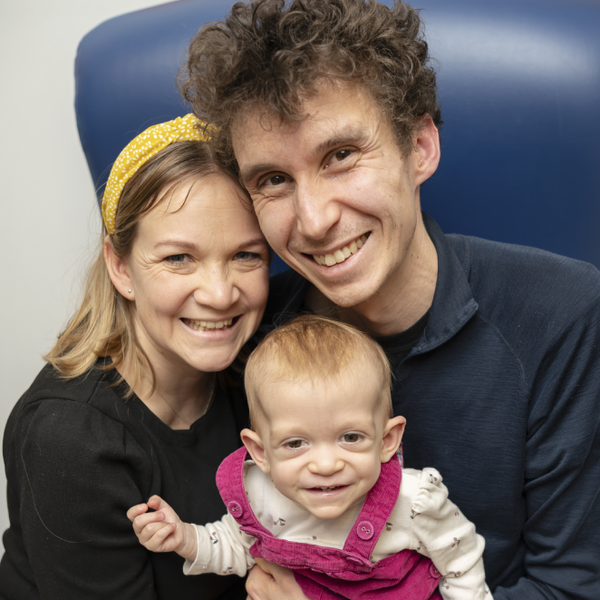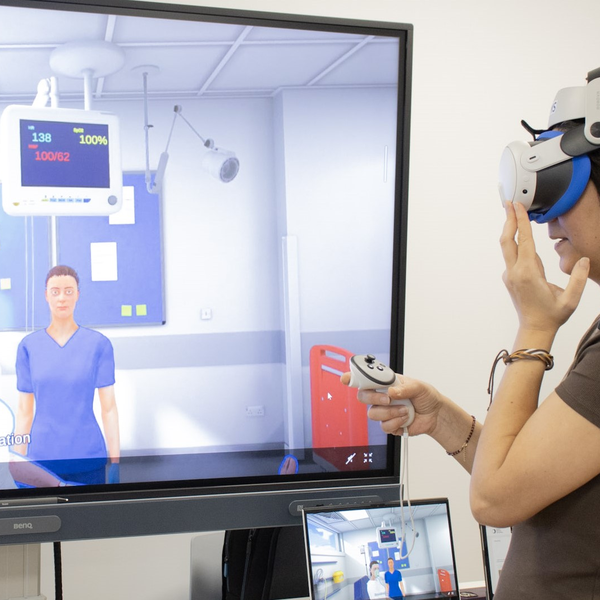Featured news
All news
Showing 20 results

Nurses’ visit is trip down Memory Lane
Three Addenbrooke’s nurses who trained together 50 years ago took a trip down Memory Lane this week.

Industrial action: Junior doctors June 2023
The British Medical Association (BMA) has confirmed further industrial action, in the form of strike action, will be undertaken by junior doctors at CUH for 72 hours between 07:00 Wednesday 14 June and 07:00 on Saturday 17 June.

2023 Hamm Prize Laureate
Sir Stephen O'Rahilly, an honorary consultant at Addenbrooke’s has been awarded the highly coveted biennial OU Health Harold Hamm International Prize for Biomedical Research in Diabetes.

Campaign calls for empathy on patient names
If your name is Benjamin, but you rather be called Ben, you’ll understand the sentiment behind a new campaign launched by Addenbrooke’s and the Rosie hospitals.

Can you share your pregnancy story?
If you are pregnant and your baby is due to arrive between November 2023 and early March 2024, you might be interested in taking part in a programme in which medical students from Cambridge University learn about pregnancy.

First patients treated at Wisbech Community Diagnostic Centre
The first phase of the development of a new Community Diagnostic Centre (CDC) at North Cambs Hospital, in Wisbech, has opened its doors to provide easier access and quicker diagnoses to local people and communities.

You Made a Difference - April 2023
A reassuring junior sister whose cannulation skills are legendary and a healthcare assistant who is very skilled at engaging with patients are the winners of April’s You Made a Difference awards.

Leading artist powers creativity at new children’s hospital
Artist, Amelia Pica, is helping to shape how the region’s first children’s hospital will look and feel.

Call for hundreds of hospital volunteers
A recruitment drive is underway for hundreds of hospital volunteers, after fewer signed up than expected this year and many opportunities are still available.

Body temperature control in brain injury
Addenbrooke's is spearheading new guidelines on how to manage a patient's body temperature after a life-threatening stroke or bleeding in the brain - to help improve recovery.

Update: Cambridge Cancer Research Hospital
In a statement to the House of Commons today, the Secretary of State for Health and Social Care announced that plans for Cambridge Cancer Research Hospital on the Cambridge Biomedical Campus, can proceed and will be funded.

Helping out the bugs and bees at CUH
Planting for pollinators and creating a home for mini-beasts are part of a biodiversity action week at Addenbrooke’s and the Rosie, to give nature a helping hand.

You Made a Difference team award - March 2023
The March You Made a Difference team award goes to a skilled team who work tirelessly to keep staff and patients safe – the Capital, Estates and Facilities Team.

You Made a Difference - March 2023
A driven and enthusiastic radiographer, and an interventional pulmonology service administrator who is keen to help are the winners of the March You Made a Difference awards.

Baby life-saving technology wins award
Pioneering technology developed by Addenbrooke’s and the Rosie that can help save the lives of sick babies from across the region has won a Cambridge award.

Charity partnership supports breast cancer patients
Addenbrooke’s has teamed up with a charity called Little Lifts that provides boxes of thoughtful gifts, treats and support to those about to undergo chemotherapy and radiotherapy for breast cancer.

Multi-million investment in early cancer tests
The Cambridge team behind Cytosponge - the 'sponge on a string' which identifies people at risk of oesophageal cancer - is expanding its work in the UK and beyond following a £13.4 million investment.

New app helps with baby health screening
Addenbrooke’s Hospital has helped Anglia Ruskin University with the development of a new app that will help clinicians, student midwives and educators screen for health conditions at birth.

Medicine for Members: Prostate cancer - a cancer pandemic of the modern era
Find out about the common myths of prostate cancer symptoms, the complexity of decision making once diagnosed and its growing economic and resource burden.

CUH gardens – caring for our planet, patients and staff
Gardeners at Addenbrooke’s and the Rosie have created beautiful green spaces amongst the hospital buildings, re-wilding areas and nurturing pollinator-friendly plants to create a happier, healthier environment for patients, staff and nature.






